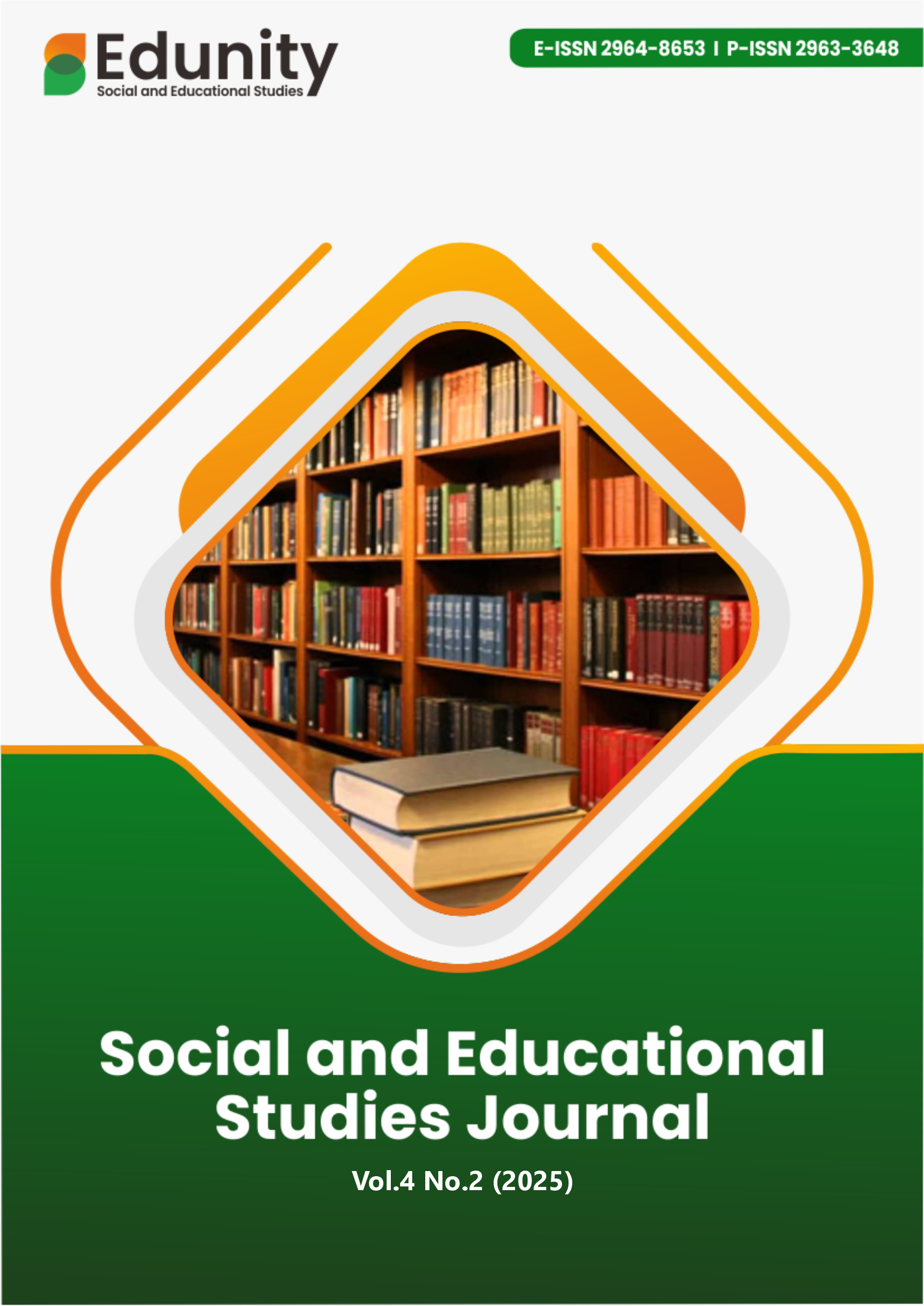News Consumption Behaviour of Generation Z in The Reading Community Via Instagram
DOI:
https://doi.org/10.57096/edunity.v4i2.371Keywords:
learnimg method, learning motivation, writing skills, descriptive English textAbstract
This study aims to analyze and examine the effect of learning methods and learning motivation on the English descriptive text writing skills of vocational high school students in Kuningan Regency. The method used in this study was experimental with the population of grade X students from two SMKs, namely SMK Negeri 6 Brass and SMK Budi Bhakti, involving 60 students as samples. Data were collected through a questionnaire on perception of learning methods, a questionnaire on learning motivation, and a writing skills test. Data analysis was conducted using two-way analysis of variance (ANOVA). The results showed that: 1) There is a significant effect of learning methods on students' English descriptive text writing skills with Sig. = 0.003 < 0.05 and Fh = 9.427. 2) There is a significant effect of learning motivation on students' writing skills with Sig. = 0.000 <0.05 and Fh = 120.422. 3) There is a significant interactive effect between learning methods and learning motivation on students' writing skills with Sig. = 0.035 < 0.05 and Fh = 4.668. This study concludes that learning methods and learning motivation have a significant impact on the English descriptive text writing skills of vocational high school students in Kuningan Regency. The results of this study provide important insights for teachers in designing more effective learning strategies to improve students' writing skills.
References
Freiman, M. (2015). The art of drafting and revision: Extended mind in creative writing.
New Writing, 12(1), 48–66.
Gregg, L. W., & Steinberg, E. R. (2016). Cognitive processes in writing. Routledge.
Grigoryeva, L. L., & Zakirova, R. R. (2022). The role of English in intercultural
communication: Past, modernity and future global perspectives. TLC Journal, 6(2).
Krippendorff, K. (2018). Content analysis: An introduction to its methodology. Sage
publications.
Lindsay, D. (2020). Scientific writing= thinking in words. Csiro Publishing.
Loeb, S., Dynarski, S., McFarland, D., Morris, P., Reardon, S., & Reber, S. (2017).
Descriptive Analysis in Education: A Guide for Researchers. NCEE 2017-4023.
National Center for Education Evaluation and Regional Assistance.
Macdonald, R. (2019). Southeast Asia and the ASEAN economic community. Springer.
Menon, J., & Melendez, A. C. (2017). Realizing an ASEAN economic community:
Progress and remaining challenge. The Singapore Economic Review, 62(03), 681
Mohammaditabar, M., Bagheri, M. S., Yamini, M., & Rasaee, M. E. (2020). Qualities of
a good English language teacher from the perspectives of textbook authors in the
field of language teaching, teachers, and learners. The Qualitative Report, 25(11),
–3960.
Nutta, J. W., Strebel, C., Mokhtari, K., Mihai, F. M., & Bryant, E. C. (2020). Educating
English learners: What every classroom teacher needs to know. Harvard Education
Press.
Pan, L. (2015). English as a global language in China. English Language Education, 2,
–90366.
Pennycook, A. (2017). The cultural politics of English as an international language.
Routledge.
Selvi, A. F., Galloway, N., & Rose, H. (2023). Teaching English as an international
language. Cambridge University Press.
Snyder, H. (2019). Literature review as a research methodology: An overview and
guidelines. Journal of Business Research, 104, 333–339.
Zein, S. (2017). The pedagogy of teaching English to young learners: Implications for
teacher education. Indonesian JELT: Indonesian Journal of English Language
Teaching, 12(1), 61–77.

Downloads
Published
Issue
Section
License
Copyright (c) 2025 Fajar Nurjaman

This work is licensed under a Creative Commons Attribution-ShareAlike 4.0 International License.
Authors who publish with this journal agree to the following terms:
- Authors retain copyright and grant the journal right of first publication with the work simultaneously licensed under aCreative Commons Attribution-ShareAlike 4.0 International (CC-BY-SA). that allows others to share the work with an acknowledgement of the work's authorship and initial publication in this journal.
- Authors are able to enter into separate, additional contractual arrangements for the non-exclusive distribution of the journal's published version of the work (e.g., post it to an institutional repository or publish it in a book), with an acknowledgement of its initial publication in this journal.
- Authors are permitted and encouraged to post their work online (e.g., in institutional repositories or on their website) prior to and during the submission process, as it can lead to productive exchanges, as well as earlier and greater citation of published work.







